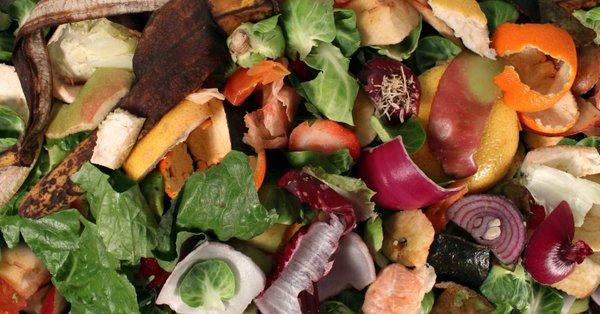By Nevson Mpofu
Mbare, Zimbabwe’s largest horticultural market receives 80% of farm produce a day. These sundry foodstuffs are in form of field crops, cereals, legumes, pulses, fruits and all types of horticultural produce from around the country’s 56 districts. Tomatoes pour on a daily basis in hundreds of tonnes every day and so do potatoes, cabbages and fruits. Some of these come from neighboring countries in the SADC region like South Africa.
Because of logistics related to mismanagement in food handling, lack of horticultural policies and proper refrigeration especially during the summer season, most of the produce from farms end up wasted. A horticultural expert who is also an economist who runs an organisation in agricultural management systems known as Knowledge Transfer Africa, Charles Dhewa said at least one-eighth of the precious farm produce is lost and wasted daily.
‘’At least one eighth of this precious produce is lost and wasted daily. This starts right straight from the farms. Because of poor transport logistics, lack of refrigerated vehicles and distance from the market, this figure is reached at through underestimation, but this could be more since some losses and wastages are not recorded.”
Among these wastages, tomatoes are more at loss because of their perishability. Horticultural produce needs adequate refrigeration and the enterprise must be close to markets. Therefore, refrigeration technology is by no doubt not to be ignored. There is also the need of accessibility to highways linking the city of Harare to some towns and markets where produce is taken.
Therefore factors related to perishability, accessibility and inefficient markets must be considered as first priority. Economic factors related to over-supply when demand is high and price elasticity affect the farmer. However, the lack of inputs due to economic hardships is a burden to farmers.
Besides, the El Nina and El Nino affect farmers, which lead to droughts or very high rainfall. Very low profits come from the erratic supply of the value chain resulting in farmers wasting more food commodities as they end up in subsistence horticulture.
This alone, compromises on low quality food commodities without refrigeration. The Expert said that climate change leads to food losses and waste with severe impact on farmers.
‘’These factors leads to strong losses and wastages which throw farmers out of business. Some farmers end up failing to cope up with such challenges. They give up this trade at the same time malnourishing families. This is the only time wastage of food goes down.
However, caution is always practised by both farmers and buyers in the market but what pulls everything down are marketing and economic circumstances beyond their control. There is a need to address the lack of co-ordinated supply, lack of proper communication and poor timing by the farmers.
Tafadzwa Chibika a commodities control personnel said most farmers have low education and commodity marketing knowledge. They then face problems of ‘’unpredictable supply, liquidity issues and end up duped by eco-cash unscrupulous agents who charge 20% for cash out.
“Farmers want to be paid in cash but, alas, cash is hard to come by, so these buyers end up buying using Eco-cash at the expense of farmers who want to travel back home with cash on hand.”
One of the prominent traders, Innocent Munetsi from Mutoko pointed out that most perishable farm produce gets wasted along dirty, dusty and potholed roads in rural areas. Commodities sometimes spend 2 to 3 piled crates handled with less care.
‘’We come across many problems and challenges especially in the market. Unscruplous buyers or makoronyera always want to pay very low prices. They preach to you all forms of changing economics ranging from prices, over-supply, less demand and low business. We end up sometimes throwing in bins rotten farm produce.”
A housewife, Naume Chiutsi had to take back home partly rotten tomatoes and potatoes because no one bought her products on cash.
Charles Dhewa called for policies to control the movement of commodities from the farms. Most of the commodities are carried by buses and get destroyed along the way, leading to losses and wating.
‘’There is no policy on Horticulture in the country .We call the Agricultural Marketing Authority [AMA] to advocate for policies at national level which focus on commodity transportation from the farms into the cities for marketing.
‘’Wastage will always be there since all the big markets have no refrigeration systems. This is a big problem. We need cold rooms, which accommodates tonnes of fresh farm produce.
‘’Some wasted food is taken to Pomona and some of it is bought by pig farmers who buy it at low cost or get it for free. We need to work on policies on food containerization and refrigeration. Secondly, it is vital to train farmers on food handling management to avoid wastage. Thirdly, those in the market, need training so that they remain vigilant on issues related to this,” Dhewa said.
Although there is a biogas to generate energy using food wasted, there is need for a bigger, modern one.
Tendai Marowa of Comprehensive Energy Solutions said there was need for more production of food so that unmanaged waste could be increased to capacitate the generation of the biogas energy.
“There is need for the Government to implement policies on food collection in the cities and towns so as to sustain the bio-gas project throughout the country as stated in the Energy policy. The more the development of energy systems, the more electricity at household, industrial and market levels.”
